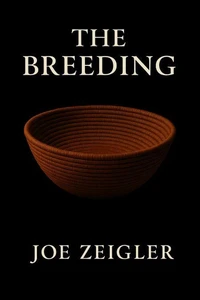The Art of the LieBy Joe ZeiglerFor nearly half a century, the United States has been marinating in deception-manufactured, monetized, and sold as patriotism. The Art of the Lie is the autopsy. It traces how truth became partisan, how politics became performance, and how democracy learned to live without honesty. Joseph S. Zeigler writes with the precision of a programmer and the moral fury of someone who's lived long enough to see the same mistakes repeated until they became culture.
He's not interested in comfort; he's interested in truth. From Roy Cohn's courtroom tactics to Roger Ailes's television empire, from Rush Limbaugh's outrage economy to the social-media algorithms that finished the job, Zeigler shows how we built the world that made Donald Trump possible-and then pretended to be shocked when it stood up and spoke. Trump didn't corrupt the system; he revealed it. He didn't invent the lie; he branded it.
He turned deception into entertainment and grievance into profit, until outrage became currency and loyalty replaced evidence. The Art of the Lie follows the money, the media, and the myth that turned citizens into spectators and politics into theater. This is not a partisan screed. It's a reckoning. Zeigler exposes how the "forgotten American" myth was engineered-by think tanks, talk radio, and networks that learned anger was more profitable than accuracy.
Every page connects another dot in the architecture of deceit, showing how repetition became truth and how democracy eroded, pixel by pixel, into convenience. Zeigler's style is sharp, journalistic, and devastatingly clear. He's not a pundit; he's a witness. He's seen the corporate cynicism that destroyed business reemerge in government-and he names it. He writes like Orwell would have if Orwell had lived to see Twitter.
The closing chapters move beyond Trump to what comes next: algorithmic propaganda, AI-generated "truth, " news tailored to each grievance. He describes a future where every citizen lives in a personalized illusion, comforted by the illusion of knowledge while reality rots underneath. "The republic doesn't collapse all at once, " he writes. "It erodes, pixel by pixel."Still, Zeigler insists that recognition-the act of naming a lie when you hear it-is the first step toward sanity.
There's no easy redemption here, only the hope that awareness can still matter. The Art of the Lie reads like history written from inside the collapse. It's a warning, a confession, and a mirror. For readers of Twilight of Democracy, The Road to Unfreedom, and On Tyranny, it's both companion and confrontation-a moral inventory of a nation that stopped caring who was lying, as long as they lied for our side.
Every generation produces its chronicle of decline. This one is ours.
The Art of the LieBy Joe ZeiglerFor nearly half a century, the United States has been marinating in deception-manufactured, monetized, and sold as patriotism. The Art of the Lie is the autopsy. It traces how truth became partisan, how politics became performance, and how democracy learned to live without honesty. Joseph S. Zeigler writes with the precision of a programmer and the moral fury of someone who's lived long enough to see the same mistakes repeated until they became culture.
He's not interested in comfort; he's interested in truth. From Roy Cohn's courtroom tactics to Roger Ailes's television empire, from Rush Limbaugh's outrage economy to the social-media algorithms that finished the job, Zeigler shows how we built the world that made Donald Trump possible-and then pretended to be shocked when it stood up and spoke. Trump didn't corrupt the system; he revealed it. He didn't invent the lie; he branded it.
He turned deception into entertainment and grievance into profit, until outrage became currency and loyalty replaced evidence. The Art of the Lie follows the money, the media, and the myth that turned citizens into spectators and politics into theater. This is not a partisan screed. It's a reckoning. Zeigler exposes how the "forgotten American" myth was engineered-by think tanks, talk radio, and networks that learned anger was more profitable than accuracy.
Every page connects another dot in the architecture of deceit, showing how repetition became truth and how democracy eroded, pixel by pixel, into convenience. Zeigler's style is sharp, journalistic, and devastatingly clear. He's not a pundit; he's a witness. He's seen the corporate cynicism that destroyed business reemerge in government-and he names it. He writes like Orwell would have if Orwell had lived to see Twitter.
The closing chapters move beyond Trump to what comes next: algorithmic propaganda, AI-generated "truth, " news tailored to each grievance. He describes a future where every citizen lives in a personalized illusion, comforted by the illusion of knowledge while reality rots underneath. "The republic doesn't collapse all at once, " he writes. "It erodes, pixel by pixel."Still, Zeigler insists that recognition-the act of naming a lie when you hear it-is the first step toward sanity.
There's no easy redemption here, only the hope that awareness can still matter. The Art of the Lie reads like history written from inside the collapse. It's a warning, a confession, and a mirror. For readers of Twilight of Democracy, The Road to Unfreedom, and On Tyranny, it's both companion and confrontation-a moral inventory of a nation that stopped caring who was lying, as long as they lied for our side.
Every generation produces its chronicle of decline. This one is ours.

 , qui est-ce ?
, qui est-ce ?